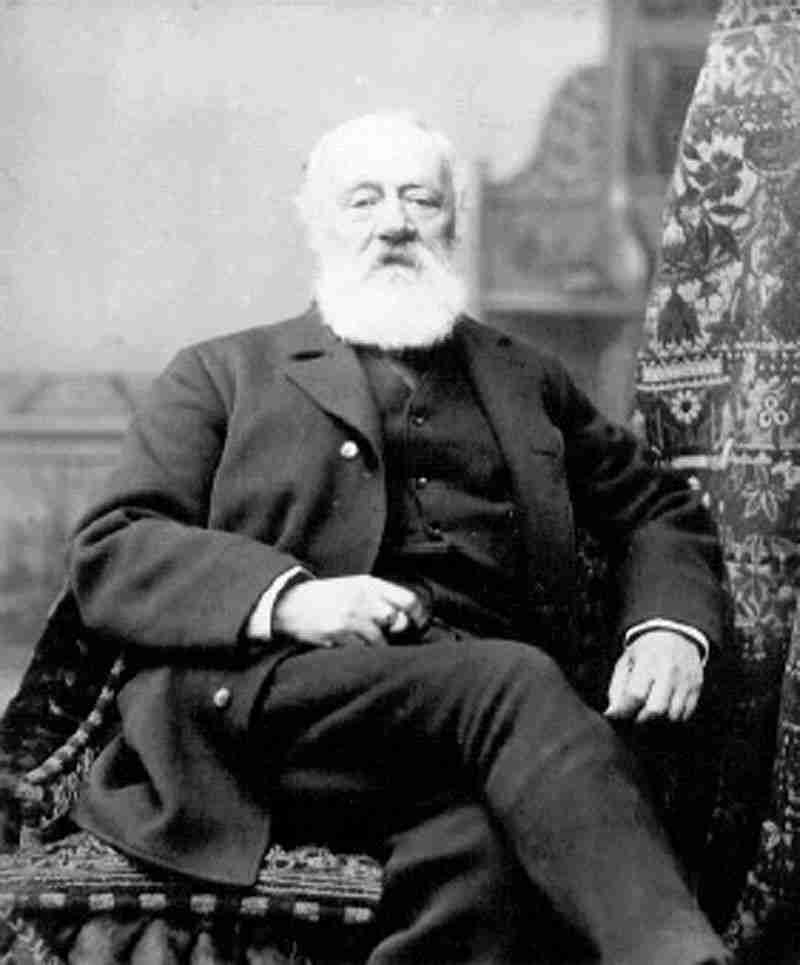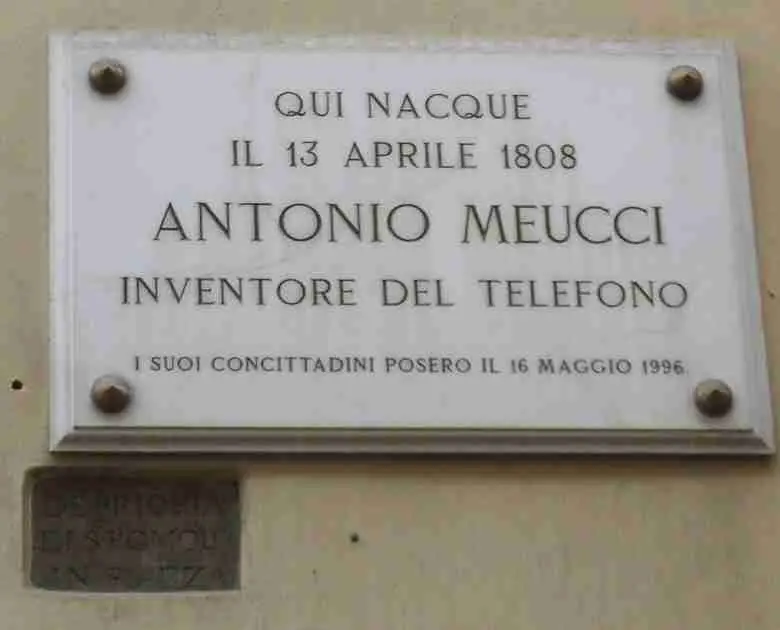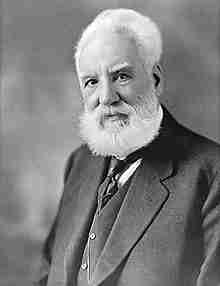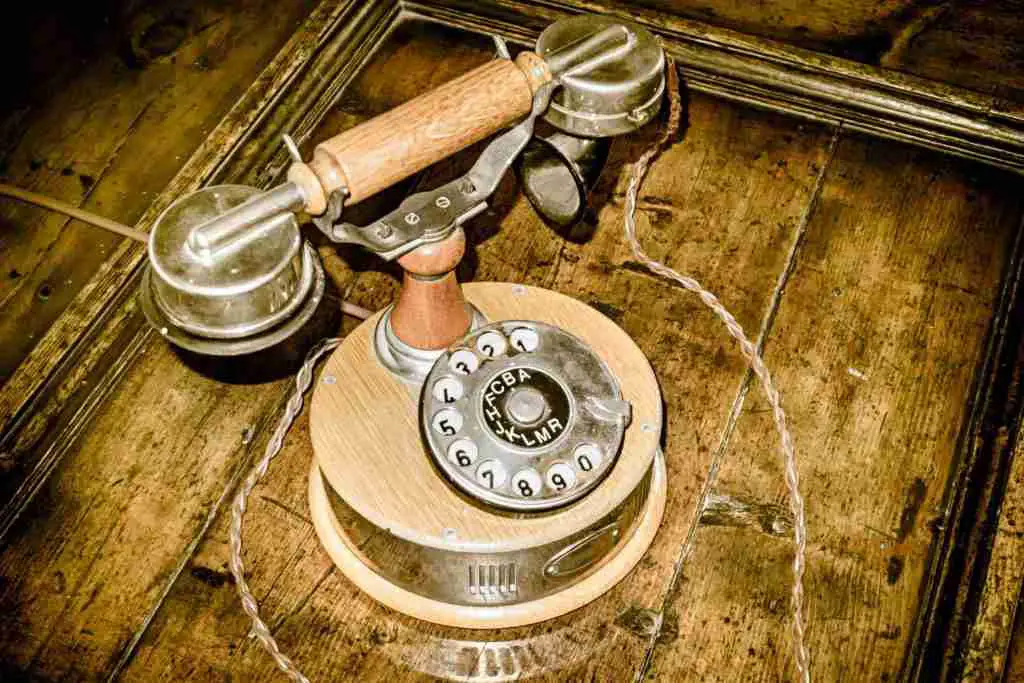“That’s an amazing invention, but who would ever want to use one of them?”
President Rutherford B. Hayes, while he was handling the first telephone for a trial conversation between Washington and Philadelphia in 1876.
The invention of the telephone in the late 19th century revolutionized long distance communication and connected the world in an unprecedented way. This groundbreaking technology allowed people to instantly communicate across great distances by voice for the first time in human history.
While Alexander Graham Bell is popularly credited with inventing the telephone, some believe Italian-American inventor Antonio Meucci should be recognized as the first to conceive and develop telephone technology. Though Meucci demonstrated his early telephone prototypes in 1860, he failed to protect his invention through a definitive patent.
But did he actually invent the first version of the telephone? Meucci’s path to developing voice communication via wires highlights an intriguing story of innovation and misfortune. In this article we will introduce Antonio Meucci: cruel story of telephone’s true inventor.

Antonio Meucci’s Early Life and Work
Where was antonio meucci born? Antonio Santi Giuseppe Meucci was born in Florence, Italy on April 13, 1808. As a young man, he studied chemical and mechanical engineering at the Florence Academy of Arts. He then worked at the Teatro della Pergola opera house in Florence, where he helped design and construct stage equipment. This work kindled Meucci’s interest in acoustic communication.
In 1834, Meucci accepted a position as technical director and chief engineer at the Teatro Tacón opera house in Havana, Cuba. He immigrated to Cuba with his wife Esterre. Meucci collaborated with inventor Francesco Carlo Biscaldi while in Havana, developing early models of an electrotherapy device for treating illness.
Where did Antonio Meucci live? Antonio Meucci and his wife moved to the Clifton neighborhood of Staten Island, New York in 1850. He set up a candle factory while continuing experiments with electrical devices. Unfortunately, his wife Esterre was paralyzed after an accident aboard the steamer that transported the couple to New York. Meucci devoted years to caring for her condition, depleting his finances.
Telephone’s true inventor: developing the First Telephone Prototype
While living on Staten Island in 1854, Antonio Meucci constructed a basic form of the telephone using an electric signal transmitter and receiver. Some records indicate he called this device a “telettrofono” in Italian. Meucci reportedly built his telephone system to connect his second-floor bedroom to his candle factory. His device used a copper wire and conductive electromagnetic waves to transmit articulate speech between the two locations.
Antonio Meucci claimed his early telephone experiments could communicate “vocal sounds joining two boards through electric wire vibrations” over short distances. His device consisted of a mouthpiece and a conductor reed separated by electrified currents but not making direct contact. Meucci intentionally kept a small space between the two conductors to better transmit vocalization.
According to Antonio Meucci, his primitive telephone conversations were “free of the interferences from external noises,” suggesting it could isolate the human voice. However, transmission only worked over wires less than a mile in length.

Demonstrating the First Telephone
Between 1854 and 1871, Antonio Meucci reportedly improved his telephone models and demonstrated his inventions to various people on Staten Island. He personally funded his research and did not seek private investments.
In 1856, Antonio Meucci asked an American District Telegraph Company lab in Staten Island to preserve records of his telephone experiments as he could not afford the $10 fee to file an officially notarized caveat. Meucci later claimed the telegraph company office on Staten Island helped him develop early telephone prototypes, but these reports remain unsubstantiated.
In August 1857, Antonio Meucci reportedly contacted Western Union telegraph company vice president Edward B. Grant, who oversaw Associated Press operations. Meucci asked Grant to develop his telephone technology and make it available to the general public. However, Grant did not take interest after Antonio Meucci’s demonstration.
Over several years, Meucci exhibited his device to physician Dr. Seth R. Beckwith, engineer John Fleming, former U.S. Congressman Edward F. Bennis, and Judge Jesse Hedden, among other observers. In 1868, Antonio Meucci improved the prototype using sangminette, an iron carbide material, to better transmit speech.
Telephone’s true inventor: Meucci’s Financial Distress
Meucci faced severely limited finances after 1857 due to debt accrued from his wife’s long illness. Her condition consumed Meucci’s time and earnings, forcing him to unsuccessfully seek backers to support his telephone venture.
By 1870, Meucci’s poverty stricken situation was so dire he could not even afford the $10 fee to submit a caveat describing his telephone invention. The financial panic of 1857 had depleted Meucci’s assets, prompting him to unsuccessfully scramble for funding to commercialize his telephone.
Telephone’s true inventor: patenting a Breakthrough Invention
In early 1871, Meucci reputedly constructed newer telephone devices and transmitted articulate human voice audibly enough that one could understand speech from another room. After testing the enhanced prototype, Meucci explored filing a definitive patent to protect his pioneering electromagnetic voice communication breakthrough.
However, Meucci could not afford the $250 fee for a definitive patent application. He had previously not bothered filing for patents in the 1850s because fees were even higher at $30 to $40 for a caveat and $100 to $500 for a patent. Due to his impoverished situation, Meucci failed to secure a patent that would irrefutably prove he invented an electric telephone.
Meucci-Bell Telephone Controversy
On March 7, 1876, Alexander Graham Bell was granted his historic patent for the electric telephone. Meucci supporters argue that Bell stole Antonio Meucci’s pioneering work based on demonstrations and documents shown to Bell at the telegraph company. However, no evidence confirms Bell illegally obtained Meucci’s designs.
Two years after Bell secured his telephone patent, Antonio Meucci filed for bankruptcy in New York in the summer of 1878. At that time, he assigned his telephone technology interests to friend and hotel proprietor Angelo Bertolino for protection. This legal action prompted Meucci’s associates to renew efforts to obtain recognition for Meucci’s role as the true telephone inventor.
In December 1880, Meucci filed a caveat at the United States Patent Office to establish priority over Bell for inventing the telephone. However, the one year window for submitting a patent caveat related to Bell’s 1876 patent had closed. Meucci failed to successfully invalidate Bell’s right to the first telephone patent.
Antonio Meucci never accumulated sufficient credibility or legal standing during his lifetime to prove he preceded Bell in inventing the telephone. Had Meucci secured conclusive documentation and patent protection earlier, the history of this groundbreaking technology could have unfolded very differently.

Telephone’s true inventor: Meucci’s Role Assessed by Congress
After Meucci’s death in October 1889, his work gained renewed attention. U.S. Congressman Michael A.M. Cravens of Arkansas sponsored a resolution in the House of Representatives in 1886 directing the U.S. Attorney General to investigate Meucci’s claims against Alexander Graham Bell.
However, the resolution eventually failed in Congress after a committee reviewed Meucci’s case. Without strong technical evidence from Meucci’s documents, Bell maintained his status as the telephone’s official inventor.

Telephone Trivia Related to Meucci
- Some claim Meucci was close to finalizing a telephone prototype in 1861 when he suffered serious burns and injuries that halted his work for several years.
- Meucci reputedly once connected his primitive telephone across New York harbor between Staten Island and Manhattan to demonstrate his device could transmit speech over distance.
- In 1856, Meucci’s lawyer submitted a caveat to what was then the U.S. Patent Office that briefly described a device Meucci was developing, but did not clearly identify it as a telephone.
- While living in poverty, Meucci sold most of his telephone materials and equipment to a secondhand dealer to raise money in 1861. This left him without working models to exhibit.
- A resolution was submitted to the U.S. House of Representatives in 2001 that would have officially recognized Meucci’s contributions to the telephone, but it did not pass.
- The U.S. House of Representative passed a resolution in 2002 declaring that Alexander Graham Bell invented the telephone, ending Meucci’s claims.
- Some Meucci advocates argue his telephone caveat was illegally destroyed or lost at the U.S. Patent Office, denying Meucci evidence to prove he invented a telephone.
The Bottom Line
In this content we discussed Antonio Meucci: cruel story of telephone’s true inventor. While Meucci failed to overturn Bell’s patent, his intriguing story still inspires debates over who should be credited with inventing the earliest telephone. Meucci is respected for conceiving rudimentary forms of voice transmission technology in a time before mature theories and tools were available. His pioneering experiments with electric communications were groundbreaking.
Even if Meucci’s role as the definitive telephone inventor remains uncertain, his innovative work paved the way for later breakthroughs. Meucci should be remembered for his trailblazing efforts to develop and demonstrate the principles of what would become one of the most transformative technologies in human history. To discover and learn more interesting facts, continue to follow our blog and support our LCN App.
Bibliography on Meucci’s Role in the Telephone’s Invention
Basilio, Catania. Antonio Meucci: Inventor of the Telephone. Penton Press, 1937.
Bruce, Robert V. Bell: Alexander Bell and the Conquest of Solitude. Cornell University Press, 1990.
Carson, Mary Kay. Alexander Graham Bell: Giving Voice To The World. Sterling Publishing, 2007.
Coe, Lewis. The Telephone and Its Several Inventors: A History. McFarland, 1995.
Evenson, A. Edward. The Telephone Patent Conspiracy of 1876: The Elisha Gray – Alexander Bell Controversy. McFarland & Company, 2000.
Hochfelder, David. The Telegraph in America, 1832-1920. The Johns Hopkins University Press, 2012.
Jonnes, Jill. Empires Of Light: Edison, Tesla, Westinghouse, And The Race To Electrify The World. Random House, 2004.
Josephson, Matthew. Edison: A Biography. John Wiley & Sons, 1992.
Bruce, Robert V. Alexander Graham Bell and the Conquest of Solitude. Cornell University Press, 1990.

